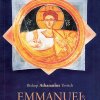He is engaged in poetry and painting. His collection of poems The Outcast was published by the Serbian Heritage Academy in 1988.
. He had who one-man shows of paintings and he regularly takes part in group exhibitions in Los Angeles.His genre is the realistic one, with a touch of surrealism.
He is specially interested in themes considering our past, but works on modern themes as well.






